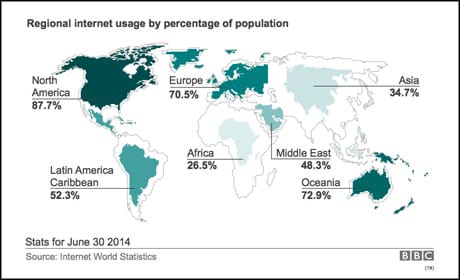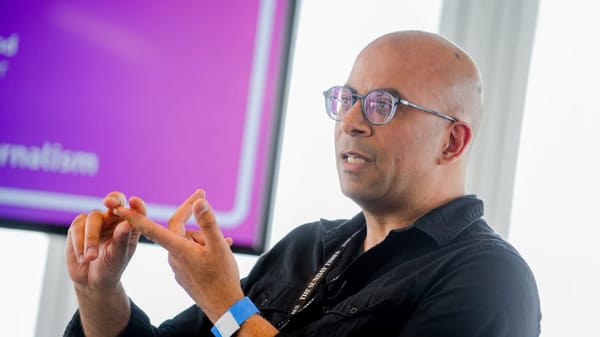Data, automation and collaboration: BBC's Future of News
'This exercise is not about predicting the next decade, but preparing for it' – BBC director of news and current affairs James Harding


'This exercise is not about predicting the next decade, but preparing for it' – BBC director of news and current affairs James Harding

This article was migrated from an old version of our website in 2025. As a result, it might have some low-quality images or non-functioning links - if there's any issues you'd like to see fixed, get in touch with us at info@journalism.co.uk.
The BBC has released the first report from its Future of News project, which aims to consider how journalism will change over the next 10 years.
In his introduction to the report, the BBC's director of news and current affairs, James Harding, said: "This exercise is not about predicting the next decade, but preparing for it".
The corporation demonstrated its commitment to innovation with this week's launch of its BBC Taster platform , a space for experimenting with new ways of collaboration and storytelling.
Below are the key points from the report, which can be read in full online as an immersive story .
The report highlights "faster, cheaper and more widespread" internet connectivity as one element which will impact both on the way journalists produce news and the way people consume it.
In addition, more powerful microprocessors – which the BBC predicts will continue to get smaller, cheaper and faster in accordance with Moore's Law – will lead to "exponential growth, not just in computing power, but in the versatility and effectiveness of a huge range of electronic devices and systems".
As a result, people will be have more access to news than ever before thanks to the development of 4G and 5G networks and "smaller and more powerful" devices such as phones, cameras and wearables.
However, the report also recommends news organisations must bear in mind that not everyone will have access to high-speed internet connectivity, even in the UK.

Screengrab from bbc.co.uk
"The internet is bypassing the professional reporter," notes Harding, explaining computers can now do at least some of the roles that were traditionally a journalist's domain such as compiling data.
For example, computer-assisted reported was used to produce a report for the LA Times on the earthquake which stuck Los Angeles last year.
"As computing power increases, the programming of computers with algorithms, sets of complex, formulaic instructions to get jobs done, will get increasingly sophisticated," he says in the report.
"Algorithms can already be created which adapt and improve themselves, allowing a computer to 'learn' over time and develop artificial intelligence.
"The range of functions which can be automated and carried out by machines rather than humans will consequently continue to grow.
Harding notes that there is "considerable scope to further engage with audiences beyond requests for their photos and videos or comments in stories".
He adds that collaborative journalism is crucial for strengthening an outlet's relationship with its audience, and also to identify and pursue a broader range of stories.
One example of forward-thinking collaboration cited in the report is the Public Insight Network , an initiative founded by American Public Media.
More than 215,000 people have signed up to the Network, where they offer insights, story leads and other information to more than 60 newsrooms across the US.
Video is currently top of the agenda for
many news outlets
and social platforms popular trends – Facebook claims to have more than 3 billion video views a day while Twitter recently introduced an in-app video function .
And according to Harding, this is a trend that is set to continue.
"Video and audio are increasingly what mobile audiences want," he says in the report, later stating that: "People will watch more video, as connectivity, screens and user interfaces get better".
Data journalism is another area which will continue to grow, as better connectivity and computer processing power enables improvements in the way big data is filtered, analysed and stored.
Harding says "it seems likely that in the future that more stories will be found in government data, corporate data, data obtained under the Freedom of Information Act and the growing quantity of sensor data – whether on smartphones, wearable devices or drones".
While the report notes that cloud computing is already being used to store and process data, it notes that encryption technology will become "increasingly important" to protect and secure it.


